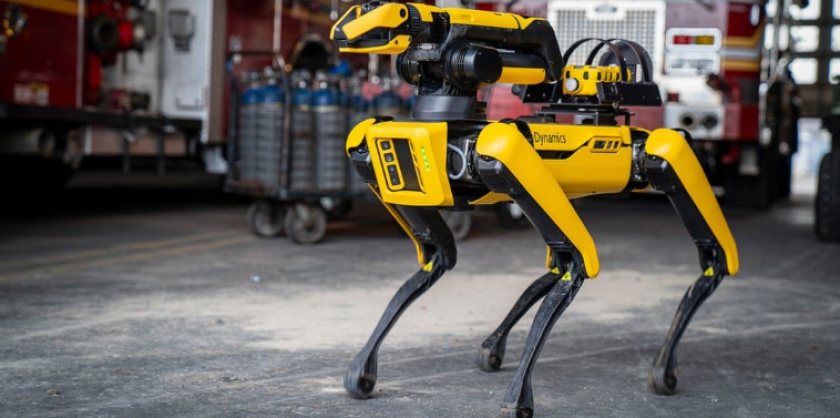-
Waymo, the Bay Area technology company behind self-driving taxis, is doing test drives on San Diego streets — with drivers — as part of its broader effort to refine the technology in new landscapes.
-
A new data-sharing platform at UC San Diego will bring the latest research and technology on wildfire ecology into one place, allowing researchers, government officials and other experts to collaborate on solutions.
-
Schools in San Diego have been ramping up efforts to train teachers on using AI in the classroom — both in showing teachers how they can use AI to make their jobs easier, and in teaching students about ethical use.
More Stories
-
The eighth annual Government Experience Awards celebrates jurisdictions that have raised the bar in technology to heighten the way they deliver essential services to residents with a focus on ease and efficiency.
-
The new police chief is using emergency powers to quickly get more surveillance cameras in Hillcrest amid an increase in hate crimes against the LGBTQ community and before the Pride Parade this month.
-
UC San Diego's TritonGPT, a suite of AI assistants built in-house for data control and cost savings, is writing job descriptions and helping with grant accounting. It's part of UCSD's strategy for handling the mundane.
-
Its vote activates plans to install a citywide network of reliable charging stations. The goal is to have chargers in place within five years at all city buildings, libraries and recreation centers, and at beach locations.
-
Plans by SpaceX and others to boost the number of rocket launches seen streaking across San Diego County's skies have prompted the California Coastal Commission to question the environmental effects.
-
Operated by Crowley Maritime Corporation, the new 82-foot eWolf will escort ships entering and leaving the Tenth Avenue Marine Terminal using electric power instead of diesel fuel.
-
The City Council voted to overhaul San Diego's hard-fought surveillance law, a move officials said was necessary to prevent citywide disruptions, but that privacy advocates saw as a gutting of oversight powers.
-
San Diego will be returning to the drawing board to figure out how to soften the city’s strict scooter regulations without compromising rider safety, the City Council decided Monday.
-
Strict rules were enacted by the City Council to limit speeds to 3 mph in much of the city – enforced using GPS tracking – and other restrictive measures that slowly pushed out operators of e-scooters.
-
After months of deliberation and some controversy, San Diego's City Council on Tuesday gave its final approval to a police surveillance network that will cost $12 million over the next five years.
-
The last scooter company willing to comply with San Diego's strict rules ceased operations in the city, just as officials prepared to propose softening some key regulations including on sidewalk speed-throttling.
-
The Defense Department says it will pay upward of $1.1 billion to a pair of San Diego's defense contractors to separately build high-altitude drones and command-and-control systems for satellites.
-
Concerns about explosions, fires and toxic gas have prompted San Diego officials to begin crafting proposed laws to regulate the storage and disposal of lithium-ion batteries, which are used in EVs.
-
The proposal to spend $12 million on a network of police cameras over the next five years was approved by the city’s Public Safety Committee last week. The proposal now heads to the City Council for consideration.
-
Mayor Todd Gloria said his office will be proposing amendments to San Diego's hard-fought surveillance ordinance next month, a law that has continued to cause controversy and confusion since its passage.
-
A hard-won ordinance that brought oversight to San Diego's many surveillance technologies needs critical fixes, officials say, or day-to-day operations the city relies on could come to a standstill.
-
A surveillance tool shares local data with out-of-state agencies — a practice among many law enforcement departments and one that some lawyers, privacy advocates and legislators say is illegal.
-
San Diego agreed Tuesday to pay 35 percent more per year for citywide usage of Dell computers as well as Microsoft programs such as Excel, Word, PowerPoint, Teams and OneDrive.

























